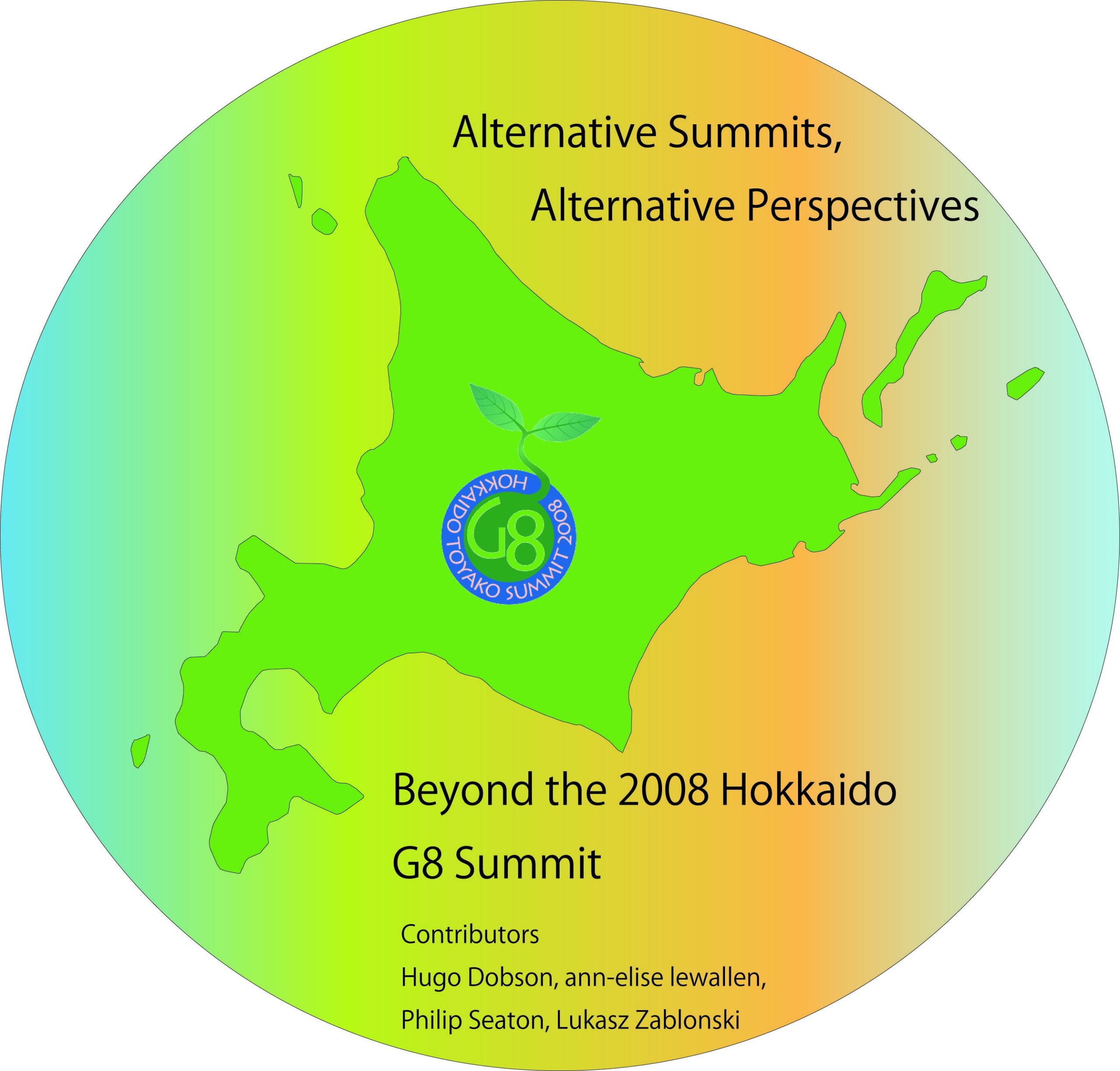Alternative Summits, Alternative Perspectives: Beyond the 2008 Hokkaido G8 Summit
Philip Seaton
Editor’s Introduction
The Hokkaido Toyako Summit 2008 was held from 7-9 July 2008 in the picturesque hot spring resort town of Toyako. This series of four essays critically evaluates the contributions and limits of the Toyako Summit to ongoing international discourse and action on some of the pressing issues of our time. In particular, it focuses on the gathering of national leaders, some of the alternative events that coincided with the summit organized by NGOs and citizens’ groups, and the effects of the summit on its host region Hokkaido.
There are three overarching themes: first, the summit and alternative summits are not treated as ends in themselves but as part of a broader, longer-term process of discussion of a variety of developmental and social issues; second, the activities of NGOs and civil society in response to the Summit are assessed from the perspective of their effects on the economy and society of Hokkaido and beyond; and third, in the context of the current media climate of predominantly critical reportage of G8 summits, the series attempts to challenge prevailing views by airing perspectives that received relatively little treatment in the mainstream media.
In particular, the series proposes that the success or failure of the summit should not be seen simply in terms of the statements and policy agreements made by the G8 leaders and other national leaders who congregated in Hokkaido in early July. The G8 summit should also be assessed as a catalyst and stage for civic action. There are many who have called for the end to G8 summits, such as Walden Bello in a fiery speech to the opening plenary of the People’s Summit, Sapporo Convention Center, on 6 July 2008. But a broader conclusion of this article series is that civil society and NGOs might be among the primary losers from the cessation of G8 summits providing a high profile venue for assessing many of the issues swept under the rug by state leaders. Indeed, civil society participants were instrumental in many of the greatest achievements of the 2008 G8 summit. At the same time, the authors critically assess the claims and outcomes of the G8 summit. Our aim, therefore, has been to find a more complex balance between the polarized views of G8 apologists, on the one hand, and the summit’s most strident critics (such as Walden Bello) on the other.
The four contributors to this series of four essays were all present in Hokkaido during the summit and participated in G8-related activities. Hugo Dobson spent the summit at the International Media Centre in Rusutsu. ann-elise lewallen was on the organizing committee of the Indigenous People’s Summit. And Lukasz Zablonski and Philip Seaton were on the organizing committee of another of the alternative summits: “International Symposium: Peace, Reconciliation and Civil Society”. They share, moreover, a common sense of the larger issues posed by the summit, if not necessarily a common set of conclusions about the events taking place both at the official venue and beyond. My thanks go to them, not only for their papers, but also for their extensive cross-reading of other articles in the series. I am also grateful to the referees, Peter Hajnal, Richard Siddle, William Underwood and Watanabe Makoto; to all the other people who took time to comment on drafts; and to Mark Selden for all his encouragement along the way.
Philip Seaton, Hokkaido University.
Posted at
Recommended citation: Philip Seaton, “Alternative Summits, Alternative Perspectives: Beyond the 2008 Hokkaido G8 Summit” The Asia-Pacific Journal, Vol. 48-4-08, November 30, 2008.
|
Article Series Index |
|
|
Alternative Summits, Alternative Perspectives: Beyond the 2008 G8 Summit |
Philip Seaton |
|
The 2008 Hokkaido-Toyako G8 Summit: neither summit nor plummet |
Hugo Dobson |
|
Indigenous at last! Ainu Grassroots Organizing and the Indigenous People’s Summit in Ainu Mosir |
ann-elise lewallen |
|
Lukasz Zablonski and Philip Seaton |
|
|
Philip Seaton |
|
|
Other Resources |
|
Andrew DeWit , The G8 Mirage: The Summit and Japan’s Environmental Policies |




